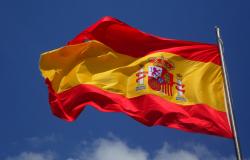Spain: Always the G20 bridesmaid, never the bride?

Permanent guests seem to be the new trend at international events—just look at Australia crashing Eurovision and Canada showing up to the Commonwealth Games (even though we all know they’ve long since moved on).
Since 2008, Spain has been a consistent presence at the G20, attending every summit as a 'permanent guest'. Yet, despite its impressive strides in economic recovery and development, it has never been seriously considered for full membership. With a GDP that surpasses that of some current G20 member nations—countries like Italy and Canada—its exclusion from the party is surprising, especially when you consider its contributions to both European and global economic stability.
For instance, South Africa, despite being a member of the G20, is considered one of the most unequal countries in the world, with 23% of South African children living in poverty. Similarly, Argentina faces significant economic instability, with a government under an 'anarcho-capitalist' president at a time when its population is struggling with high inflation and economic hardship. Against this backdrop, Spain’s exclusion feels like an oversight at best—and at worst, an insult to a country that, in recent years, has proven its resilience.
Spain’s road to recovery hasn’t been easy. In the aftermath of the 2008 financial crisis, the country faced one of the highest unemployment rates in Europe, and many skilled workers left for greener pastures. Yet, in the last decade, Spain has turned its fortunes around. Today, unemployment has dropped to its lowest levels in nearly 15 years, with a record-breaking 21 million people now employed. This remarkable turnaround speaks not only to Spain’s economic resilience but also to its capacity for sustainable growth, especially in industries like renewable energy, technology, and sustainable tourism. Spain has become a leader in these sectors and an example of how a country can recover, adapt, and thrive even after a major economic blow. Yet Spain is still the bridesmaid, never as the bride. And even worse, a bridesmaid forced to perch at the kids’ table.
You could go as far as to say that Spain has been jilted at the altar. In 2023, the G20 admitted the African Union (AU) as a permanent member, ensuring Africa's diverse and powerful voice is heard on the global stage. This was a groundbreaking move, addressing a critical gap in global governance by granting a seat at the table to 55 nations, underscoring Africa’s growing economic and geopolitical importance. The AU’s inclusion reflects a deliberate effort to amplify underrepresented regions and correct imbalances in global decision-making.
In contrast, Spain—despite its economic weight, strategic geopolitical position, and contributions to global issues—continues to sit on the sidelines, represented only indirectly through the European Union’s G20 membership. While the AU’s inclusion is vital to address global imbalances, Spain’s exclusion is more about hesitancy to add another developed economy to an already Eurocentric group. It's a difficult argument to counter, but it’s one that leaves Spain, with its significant global influence, stuck in a perpetual limbo.
As a "permanent guest," Spain participates in discussions without altering the balance of membership. However, its case for full membership remains compelling.
Realistically, Spain probably deserves its happily ever after, and chances are, they’d throw a cracking wedding reception. Ranked the second friendliest country in Europe, Spain’s renowned hospitality, combined with its culinary excellence, would certainly make for a memorable summit. After the shockingly uninspired food offerings at the Rio summit, a few plates of patatas bravas would certainly go a long way to raise spirits in the media centre.
G20 Team: Alicia Sear-Acinas, Amelia Eveleigh, Ethan Ryan, Gregory Stiles, Grzegorz Stal, Madeleine Fearn, Matthew Bishop, Imogen Parry, Scarlett Vickers, Shengyao Guo.
Photo by Pixabay


